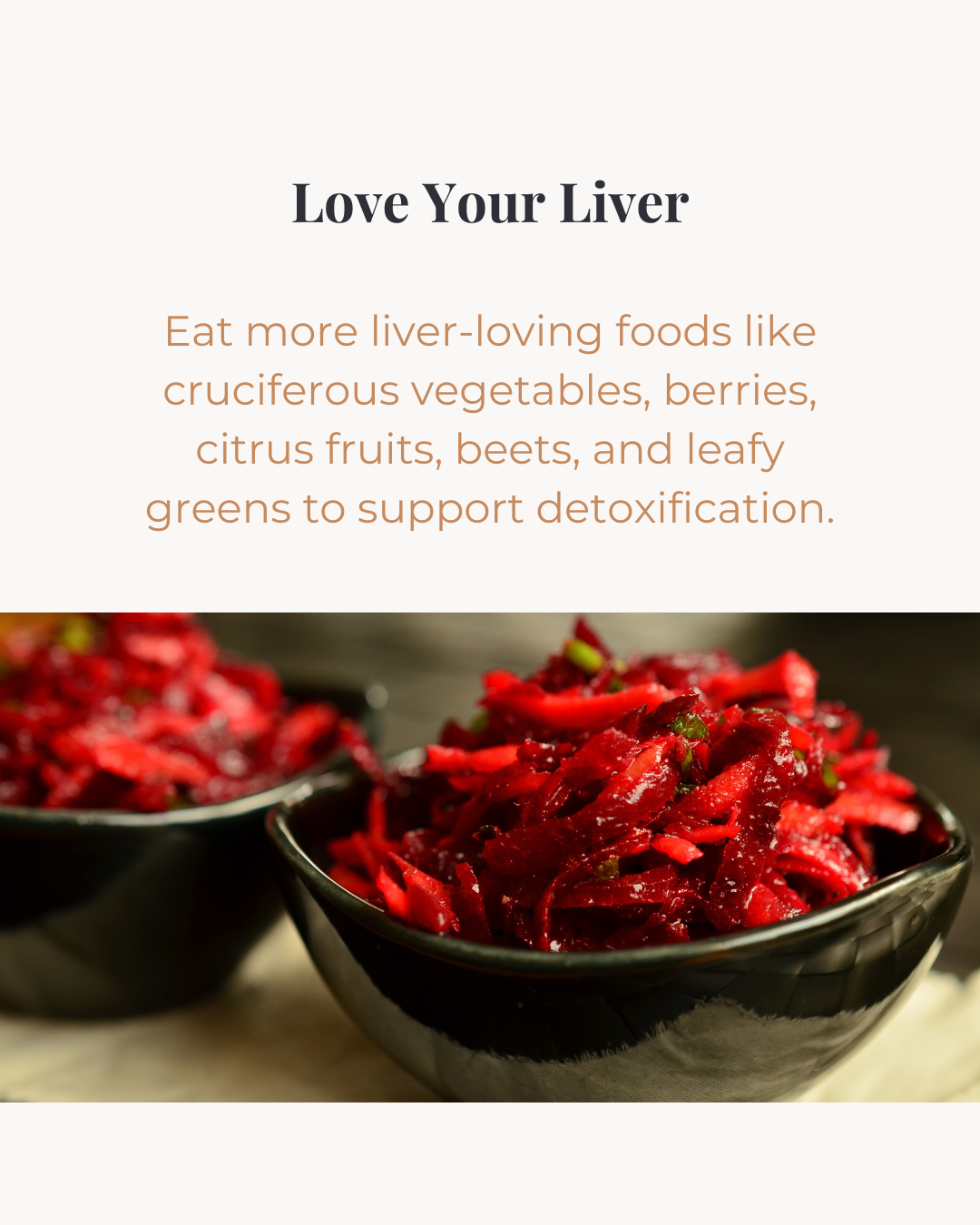6 Ways to Support Your Body If You Have MTHFR

If you've been told you have the MTHFR gene mutation—or suspect you might—it can feel overwhelming.
But here’s the good news: with the right lifestyle and nutrition strategies, you can support your body naturally and effectively.
What Is MTHFR?
MTHFR stands for methylenetetrahydrofolate reductase (yep, it’s a mouthful). It’s a gene that plays a key role in how your body processes folate and manages detoxification. Certain variants of this gene—like C677T or A1298C—can reduce your enzyme activity, affecting things like methylation, mood, detox, hormone balance, and even fertility.
How Do You Test for It?
A simple blood or saliva genetic test can confirm if you have an MTHFR mutation. You can ask your provider for a test, or use a direct-to-consumer option like 23andMe or MyHeritage and run the raw data through a tool like Genetic Genie or FoundMyFitness. (Just a reminder: not every MTHFR variant = major issue.)

1. Focus on Folate (Not Folic Acid)
Your body may not process synthetic folic acid efficiently. Instead, focus on folate from real food sources:
- Avocados
- Broccoli
- Asparagus
- Romaine lettuce
- Oranges & mangos
- Lentils
- And if you supplement, choose methylated folate (5-MTHF), not folic acid.

2. Optimize Key Nutrients
Folate works best when you support the rest of the methylation team. These nutrients help lower homocysteine levels, balance hormones, and support energy, mood, and fertility:
- Vitamin B12 (methylcobalamin or hydroxo form): grass-fed beef, salmon, sardines, tuna, eggs
- Vitamin B6: turkey, chicken, bananas, potatoes, spinach
- Magnesium: dark leafy greens, pumpkin seeds, almonds, cashews, black beans
- Choline: egg yolks, salmon, turkey, beef liver, Brussels sprouts
Try to get a variety of these in your weekly meals.

3. Keep Stress at Bay
Chronic stress can make symptoms worse—especially if you struggle with anxiety, mood swings, or sleep. Try:
- Deep breathing
- Meditation or mindfulness
- Journaling
- Gentle walks or yoga
- Time in nature (aka free medicine)

4. Eat Real, Wholesome Foods
Methylation, detox, and hormone balance all need nutrient-dense foods. Focus on:
- Colorful fruits & veggies
- Quality proteins
- Healthy fats (avocados, nuts, seeds, olive oil)
- Legumes and whole, unprocessed foods
Limit processed and packaged foods that strip your body of nutrients and add unnecessary stress to your detox systems.

5. Love Your Liver
Your liver is your detox powerhouse—and it works harder if methylation is sluggish. Support it with:
- Cruciferous veggies (broccoli, kale, Brussels sprouts)
- Leafy greens
- Berries
- Citrus fruits
- Beets
A strong liver = better hormone balance, better energy, and better skin.

6. Daily Detox Habits
Think of detox as a daily lifestyle, not a trendy 3-day juice cleanse:
- Drink plenty of water
- Move your body regularly (walk, strength train, sweat)
- Limit toxin exposure (plastics, synthetic fragrances, household chemicals)
- Prioritize sleep and eat plenty of fiber to keep things moving

Final Thoughts
If you have MTHFR, your body just needs a little extra support, and once you learn how to give it what it needs, you’ll be amazed at how much better you feel.
If you want personalized support or need help interpreting your MTHFR results, book a consultation or explore the PCOS Made Manageable program. You don’t have to figure this out alone 💕


